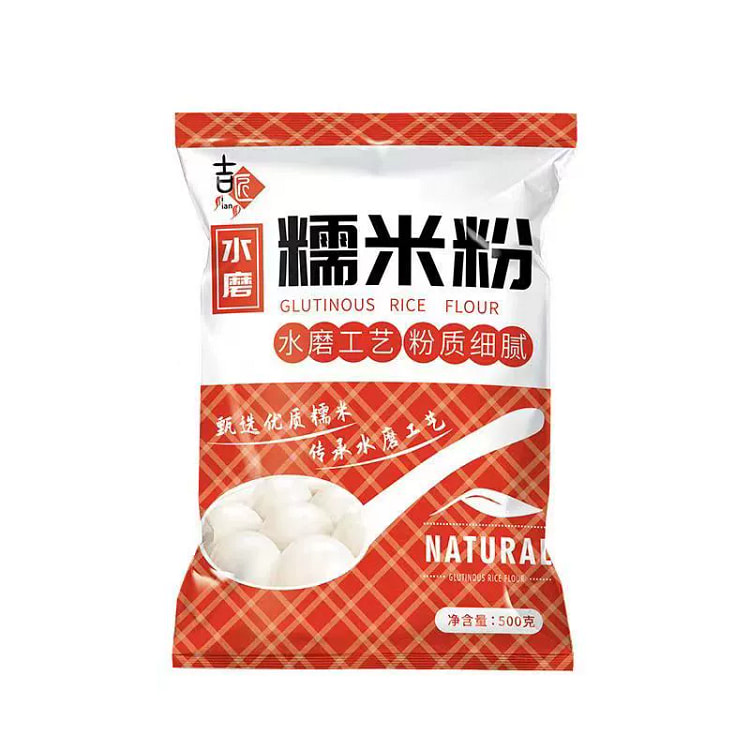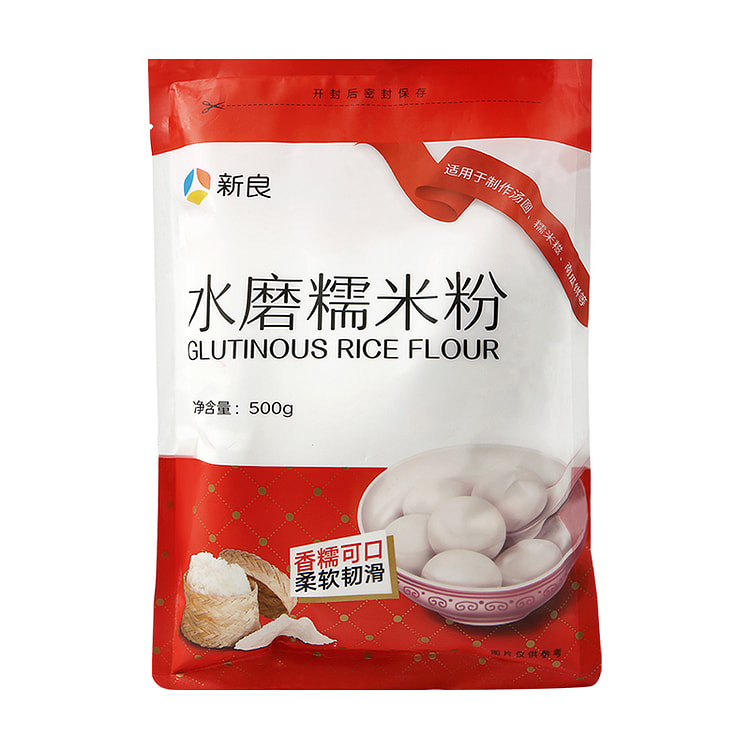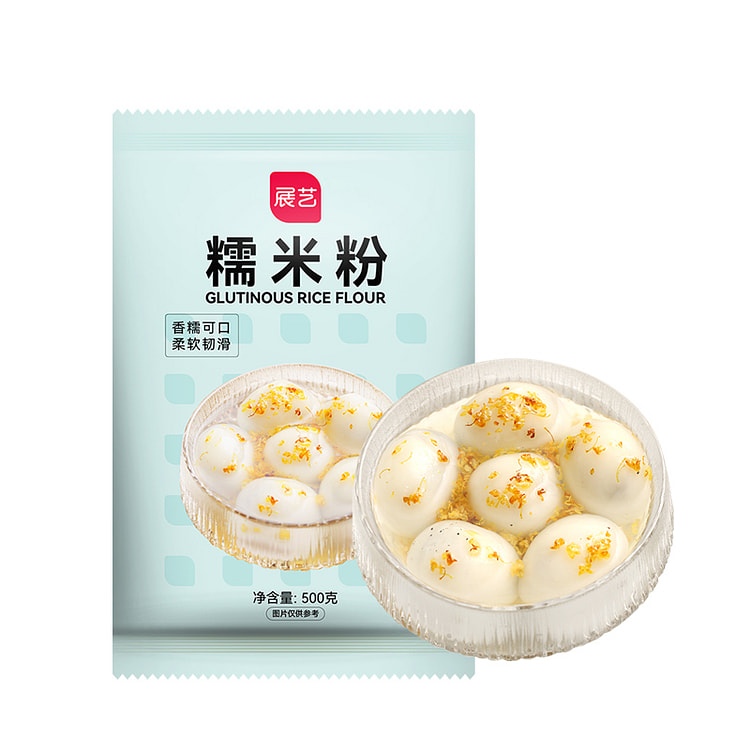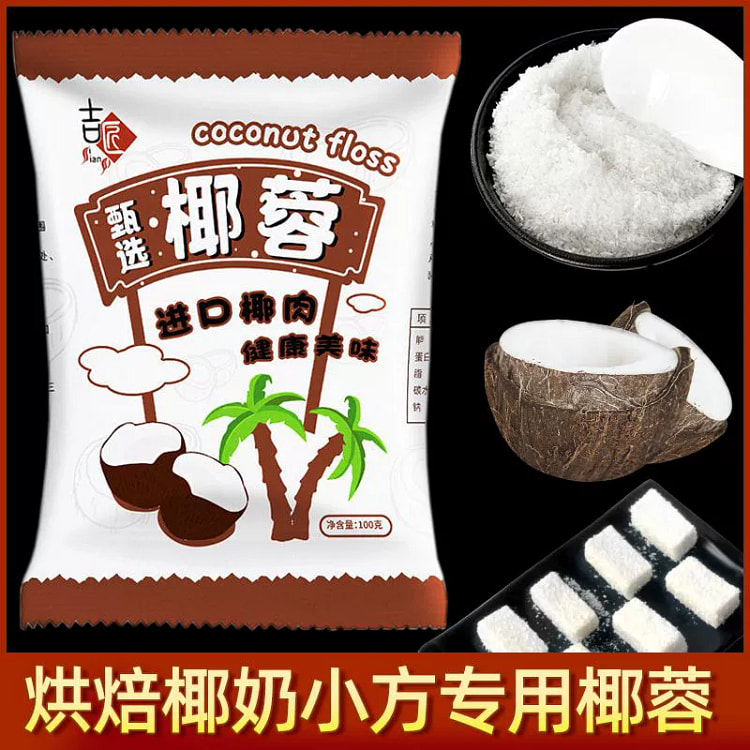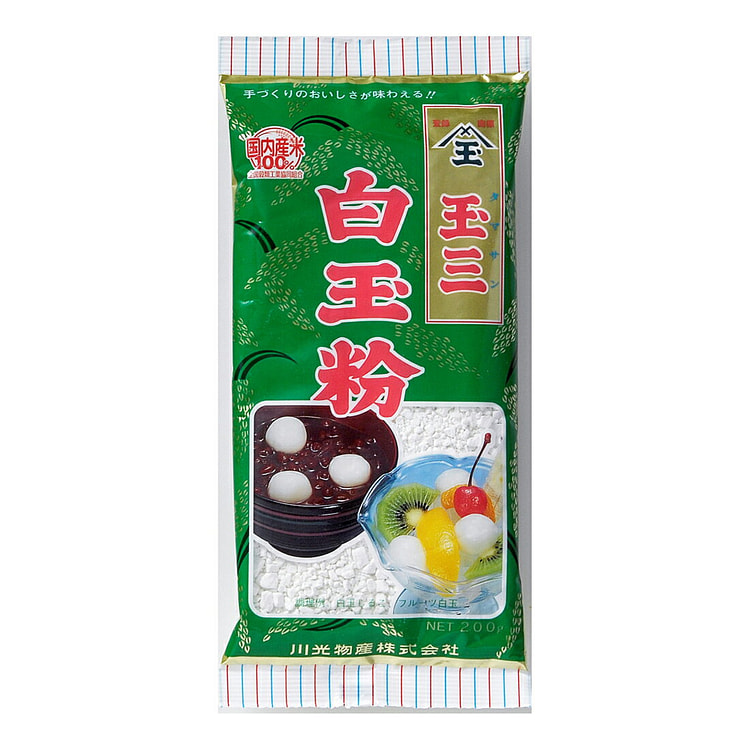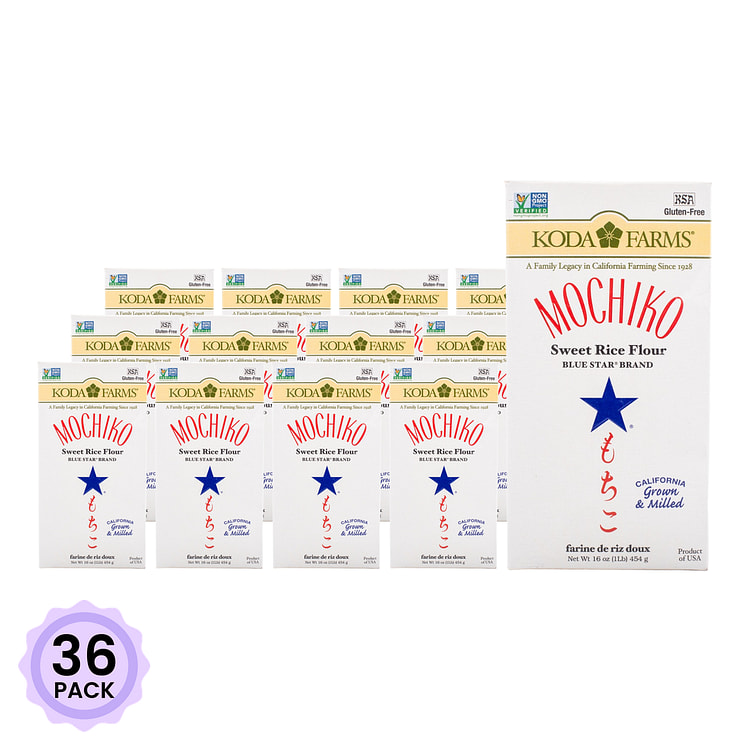Buy japanese sticky rice flour online

Japanese sticky rice flour is a versatile ingredient known for its unique glutinous texture and sweet taste. Crafted from mochigome, a short-grain, sweet rice, it's often used in traditional Japanese cuisine to create mochi and other sweet and savory dishes. It's gluten-free as well, making it a favorite among those with dietary restrictions. One of its many benefits is its flexible nature, providing the perfect consistency in a variety of recipes, from pancakes to dumplings. The popularity of this flour can be attributed to its unique characteristics, providing a chewy texture and a natural sweetness that cannot be replicated with regular rice flour. It gives your dishes an authentic taste that's hard to beat. The best place to buy Japanese sticky rice flour online is at sayweee.com with free delivery available.
Japanese Sticky Rice Flour near me
Frequently asked questions
What is Japanese sticky rice flour?
Japanese sticky rice flour, also known as 'mochiko', is a flour made from sweet rice that is often used in traditional Japanese sweets. It has a slightly sweet flavor and gives a unique, chewy texture to the dishes.
How is Japanese sticky rice flour used in cooking?
Japanese sticky rice flour is commonly used in making mochi, a traditional Japanese dessert. It's also used in various sweet and savory dishes for its ability to thicken and maintain a chewy texture even when cooled.
Is there a difference between Japanese sticky rice flour and regular rice flour?
Yes, Japanese sticky rice flour is made from short-grain sweet rice, while regular rice flour is made from long-grain rice. This results in a more sticky and sweet-tasting flour.
Can you make your own Japanese sticky rice flour?
Yes, if you have sweet rice, you can grind it into a powder to make your own Japanese sticky rice flour at home.
How should Japanese sticky rice flour be stored?
Japanese sticky rice flour should be stored in an airtight container in a cool, dry place. It's also possible to refrigerate it to extend its shelf life.
Is Japanese sticky rice flour the same as glutinous rice flour?
Yes, Japanese sticky rice flour is often referred to as glutinous rice flour. However, it does not contain gluten, 'glutinous' refers to the sticky texture.
Where can I buy Japanese sticky rice flour?
You can buy it at Weee! Asian Market, www.sayweee.com.
What other names does Japanese sticky rice flour go by?
Japanese sticky rice flour is also known as mochiko, sweet rice flour or glutinous rice flour.
Is Japanese sticky rice flour gluten free?
Yes, Japanese sticky rice flour is naturally gluten-free, which makes it a great ingredient for people with gluten intolerance.
Can Japanese sticky rice flour be used as a thickener?
Yes, due to its sticky and gooey texture after being cooked, Japanese sticky rice flour can be used as a thickener in sauces, soups, or stews.
Can I substitute Japanese sticky rice flour with regular rice flour?
No, substituting Japanese sticky rice flour with regular rice flour can significantly alter the taste and texture of your dish as they have distinctive properties.
What's the nutritional content of Japanese sticky rice flour?
Japanese sticky rice flour is high in carbohydrates and low in fat. It's a good source of energy but contains little protein.
How long can Japanese sticky rice flour keep?
When stored correctly in a cool, dry place, Japanese sticky rice flour can keep for about one year.
Can I use Japanese sticky rice flour in baking?
Yes, Japanese sticky rice flour can be used in baking for a unique, gluten-free alternative. However, it will impart a distinct texture and slight sweetness to the baked goods.
How much does Japanese sticky rice flour cost?
The cost of Japanese sticky rice flour can vary depending on the brand and where you buy it. However, it's generally quite affordable.
Does Japanese sticky rice flour have any allergens?
Japanese sticky rice flour in itself does not contain any known allergens. However, it's important to check the packaging for any additional ingredients that may cause allergies.




